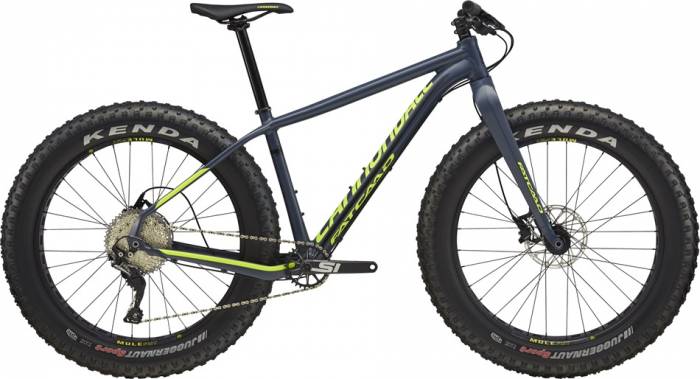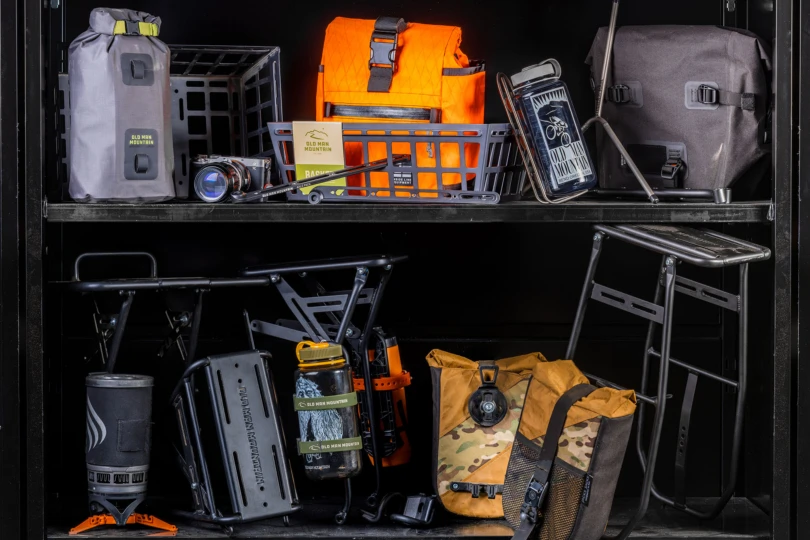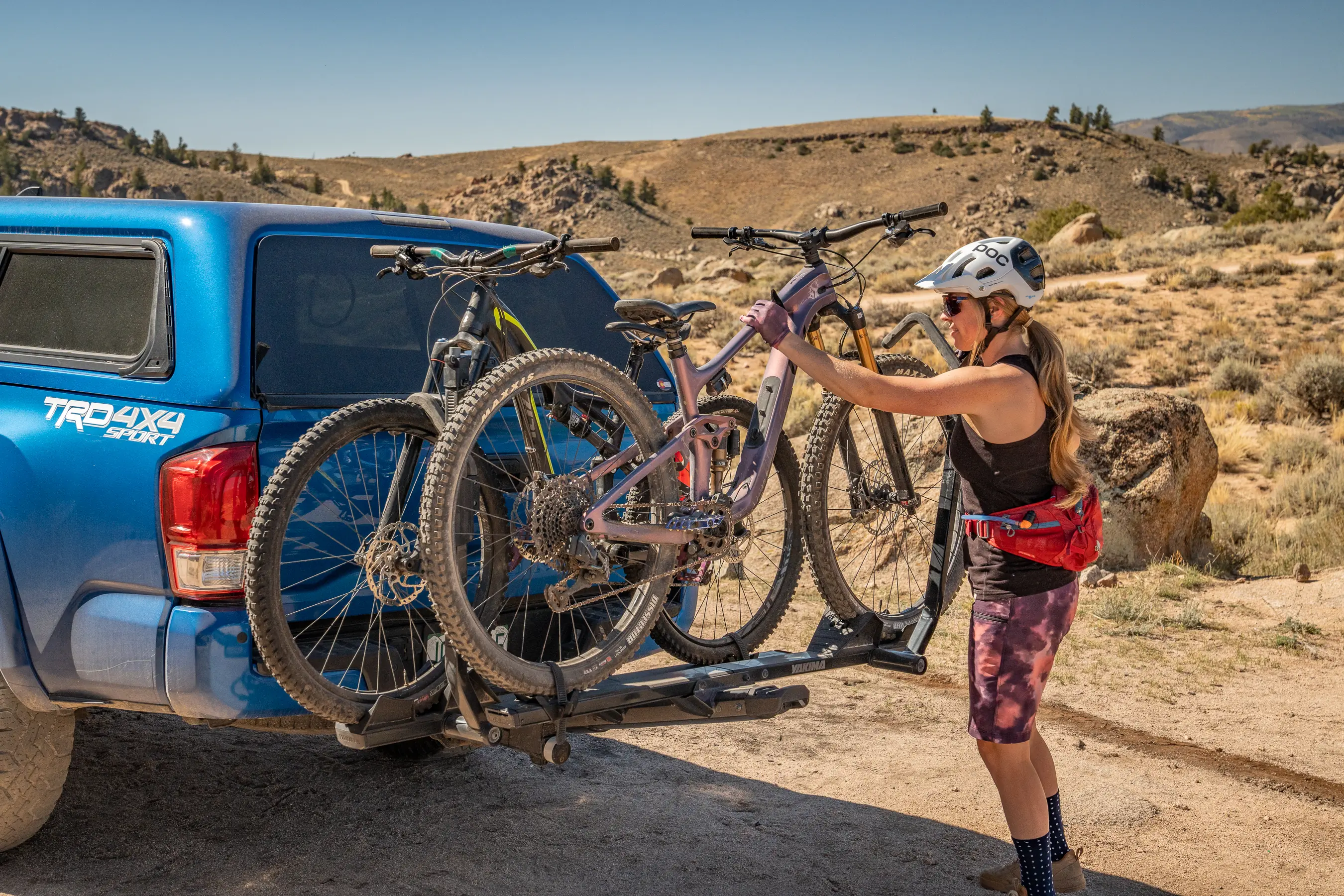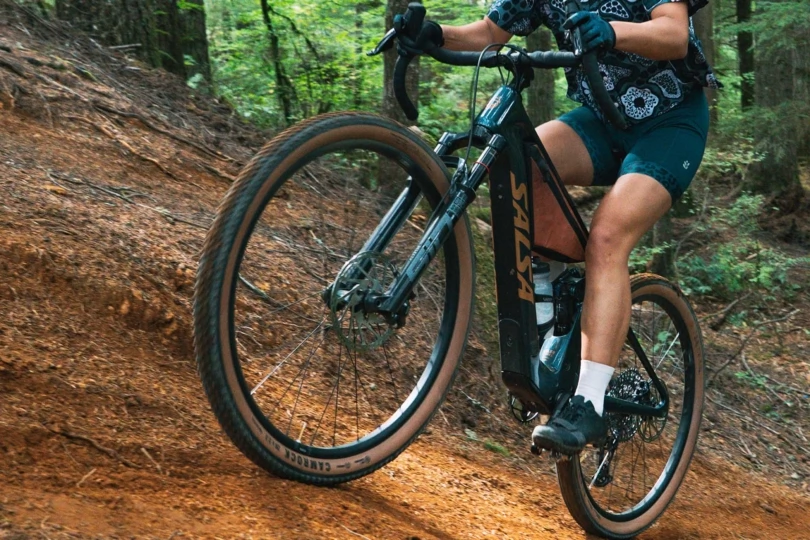How low can you go — and what can you get — when searching for the best budget mountain bike under $2,000?
Finding an inexpensive road bike or casual touring bike is relatively easy. But it’s a different story if you’re looking for a mountain bike that’ll be nimble and light enough to literally climb mountains, stay together while bombing down singletrack, and brake on a dime (or root).
Simply put, good mountain bikes are really expensive. But you can get a capable hardtail or even full suspension without selling a kidney. And don’t forget to check out our picks for “Budget Road Bikes Under $1,000.”
Mountain Bikes: Why Are They So Expensive?
There’s a reason good mountain bikes tend to be on the pricey side, even for entry-level models. First, they carry complicated suspension and braking systems that need to function perfectly at remarkably low weights. Small manufacturing scale drives up prices on high-end rigs.
Frame manufacturing requires expensive materials and extremely close tolerances. Tack on marketing budgets and ancillary expenses like warranties, and bike prices skyrocket pretty quickly. A high-quality mountain bike with basic components will quickly hit the $3,000 range, and top-end builds push $8,000 or more.
Budget Bikes: What You Get
Still, there are some great finds for under $2,000. But you won’t be getting the latest and greatest in enduro tech. Rather, most of the best buys are hardtails (though we found a couple of full-suspension options).
When looking at a mountain bike, components matter. Disc brakes and shifters are under much greater load on trails than on the road, and wheelsets are even more important. You won’t find the cream of the crop for $2,000, but you can get a good, serviceable ride with solid components.
So with all of that in mind, let’s look at the best options for the fiscally responsible (or kind of broke) rider.
Best Mountain Bikes Under $2,000
Santa Cruz Chameleon: $1,700

Whether you hope to ride mountain trails or around town, on dirt or on gravel, there’s no better value than Santa Cruz’s Chameleon. Even if you can’t decide between 29er or 27.5 wheels, this bike accommodates.
There are several brands making similar hardtail models. These allow you to swap between 29er wheels and 27.5-plus wheels. But the Chameleon really dialed the fit and all aspects of the bike to make it the ultimate do-it-all machine.
You can order the bike setup for 29er or 27.5-plus wheels and will have to buy another wheelset and make minor adjustments to swap between the two. And at under 30 pounds, it’s surprisingly light for a bike with such hefty ambitions — from singletrack to bikepack.
Bonus: The color scheme is rarely found in other bike brands. So, unlike its animal namesake, it will stand out in a crowd.
Liv Embolden 2: $1,530
First note: Women can ride any of the bikes on this list. But if you prefer supporting a women-specific bike brand or want the saddle and certain geometries (like handlebar width and top tube length) tailored more toward female body types, brands like Liv do great work.
For women looking to get seriously rad on singletrack, the Liv Embolden 2 full-suspension trail bike with 27.5-inch wheels is ready for action. While the color scheme is certainly a bit more feminine than comparable men’s or unisex models, the bike isn’t pink-and-shrink-ed.
Liv built this bike looking at three tenets of mountain biking: fit, form, and function. The bike is designed to accommodate a woman’s body, all the way down to how the shock is tuned. It also looks good and performs even better.
It boasts 120 mm of travel in the SR Suntour fork and rear shock. Whether you’re going up or down, its lightweight aluminum frame can corner like it’s on rails, stop on a dime, and make you feel confident on steep terrain. It also comes tubeless-ready for a flat-free ride with a Giant XC-2 wheelset and Maxxis Ardent tubeless tires.
Kona Cinder Cone: $1,199
Kona is one of the oldest companies making mountain bikes in the U.S., and the Cinder Cone stands as an homage to one of its longest-standing models. The original model dates back to when steel frames and 26-inch wheels were standard.
Of course, times have changed and Kona has changed with them, so the 2018 Cinder Cone model is all new and fully in this century.
With 27.5-inch wheels, a single chainring in front, and 11 speeds in the rear, this hardtail is ready to play. Using SRAM NX components for shifting and Shimano Hydraulic MT500 for braking, Kona picked the best from both companies to make a bike that was fun and less prone to trailside breakdowns.
Its Schwalbe Nobby Nic tires are classic for cross-country riders, and with a RockShox 30 Gold RL Solo Air front fork with 100-mm travel, this is a bike that’s meant to handle nimbly and go fast.
Trek Roscoe 8 Mountain Bike: $1,260
Want to have fun on a bike that handles nimbly, provides serious traction control, and can’t help but stand out in a crowd? The glaringly orange in-your-face Roscoe 8 is a “trail hardtail,” which basically means it combines a hardtail frame with a 120-mm suspension fork and 27.5-plus tires.
The wider, higher-volume tires mean more traction control and similar dampening to a rear shock. And the RockShox Judy TK Solo Air fork plus dropper post and wide handlebars mean it feels like a full-suspension without the maintenance.
It’s not the fastest bike in the race, but at just over a grand, it’ll leave some money in your pocket to join the party. Shifting comes in the form of SRAM NX 1×11 — the single chainring means fewer teeth lost to rocks and logs, plus zero front derailleur maintenance.
Specialized Women’s Rockhopper Expert: $925
While full-suspension may sound tempting, a solid hardtail 29er will handle most trails just as well — at least, until you get into more trail-riding/enduro-style shreds.
Enter one of the most classic mountain bikes of the last decade, the Specialized Rockhopper. The aluminum frame Women’s Rockhopper Expert is designed to be fast when riding or racing cross-country.
And at sub-$1,000, it’s a great beginner-friendly price tag. With time, it could easily become a bike you’ll want to hang onto even if you eventually upgrade to a beefier full-suspension bike. It’s great for climbing, though the 100-mm travel means it can make downhills fun.
The Rockhopper Expert is available in two colors. The gray with green accents is far from a “girly” style, standing out in a sea of black and purple frames typical in the women’s field.
The Shimano Deore provides smooth shifting, while Shimano BR-M315 provides stopping power in the form of hydraulic brakes. Again, Deore is one of the most common sets of components in the lower-budget bikes, but it holds up to serious riding just fine!
Cannondale Fat Caad 2: $1,900
Not every mountain biker is concerned with low weight. Some prefer the ability to shred in all seasons, and a fat bike might be exactly what they need.
Enter Cannondale’s Fat Caad 2, the rigid fat bike you’ve been waiting for. The brand selected a combination of Shimano and SRAM components for maximum efficiency and toughness. This means you shouldn’t get stuck out in the cold with frozen hydraulic brakes.
The aluminum frame isn’t as heavy as you might fear for a fat bike, though this isn’t a weight-saving bike by any stretch! Plus, it comes in five sizes so you can really tailor your riding experience. The 26-inch Sun Ringle Mulefüt 80 SL wheelset comes tubeless-ready, so you can seat your Kenda Juggernaut tires for less stress about flatting.
Co-op Cycles DRT 1.3: $935
For the adventuring cyclist who’s hoping to add a touring (or bikepacking) element to their adventures, REI’s in-house bike brand, Co-op Cycles, has the hardtail DRT 1.3.
This bike is one of the few on the list that comes in under $1,000, but it doesn’t do so at the cost of decent components. A Shimano Deore drivetrain and hydraulic disc brakes are less-expensive Shimano components, but they hold up even when the conditions get rough. The front suspension offers the standard 120 mm of travel, plus a lockout for those road sections or climbs.
For bikepacking enthusiasts, the most exciting feature might simply be the fact that this bike is meant to be loaded down, with fender and rack mounts ready to go.
Pro tip: Take advantage of REI’s free warranty tuneup by bringing the bike in after around 20 hours of riding within the first six months of buying it.
Diamondback Catch 1: $1,700
Diamondback is no longer the big-box brand of 20 years ago. Recently, the company has been putting out some fantastic bikes at a great value. And with online ordering, Diamondback will ship straight to your house. It’s also one of the few brands with a sub-$2,000 full-suspension bike (along with Liv and Scott on this list).
Diamondback offers the Catch 1 in men’s and women’s models — though only the touch points differ — and one size smaller is offered for women. The 27.5-plus wheel size means that the 3-inch-wide tires might ride a bit slower but will get over nearly anything in their path.
This bike has the most suspension of any bike on this list, with 130 mm of travel through the RockShox Yari RC 27-plus front fork and rear RockShox Monarch shock.
That, combined with wider tires, means even more traction on tough obstacles or loose trails. SRAM NX 1×11 shifts smoothly, and the single ring means less chance of bashing your chainring when rolling over logs. And SRAM’s Level hydraulic brakes provide stopping power.
Pro tip: If you order online and assemble at home, pay the money and have a local bike shop look it over to make sure everything is in order.
Scott Spark 970: $1,800
If you crave the ability to flow on more technical trails and prefer the smoothness of a full-suspension bike, the Scott Spark 970 offers all that for only $1,800. With a Rock Shox 120-mm fork in the front and an X-Fusion RL shock in the rear, you’re in for a cushy ride. But you retain the ability to lock out both in order to drop your enduro buddies on the climbs.
Syncros X25 TR rims seat Maxxis Forekaster 29er tires, and the bigger wheels allow riders to bomb over practically any terrain. The bike isn’t the lightest option that Scott offers, of course, but the alloy frame’s geometry is based around that of the lighter carbon frames of the same family.
















